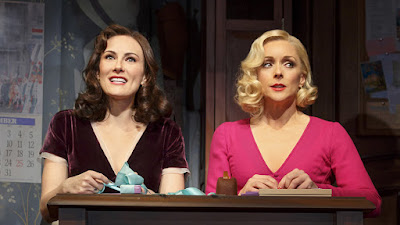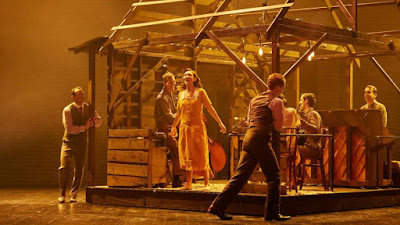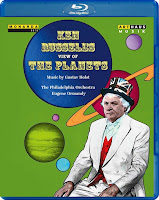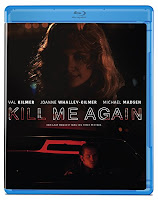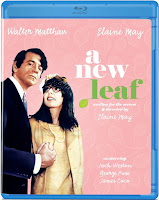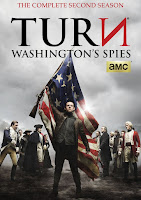- Details
-
Parent Category: Film and the Arts
-
Category: Reviews
-
Published on Tuesday, 29 March 2016 23:11
-
Written by Kevin Filipski
Blu-rays of the Week
Bicycle Thieves
(Criterion)
Vittorio De Sica's classic—one of those films appearing in all-time greatest polls, as well as being part of any Cinema 101 class—remains an emotionally devastating journey that, along with De Sica's own Shoeshine and Robert Rossellini's Rome Open City, introduced the world to Italian neo-realism.
Made in 1948 with amateur performers on the streets of post-war Rome, the film continuously flirts with soap opera but never succumbs; Criterion's new Blu-ray includes a flawless hi-def transfer and the usual illuminating extras: interviews, neo-realism featurette and 2003 documentary on screenwriter Cesare Zavattini.
Gesualdo—Death for Five Voices
Ken Russell's View of The Planets
(Arthaus Musik)
Two idiosyncratic directors provide their unique takes on two musical masters in two highly personal films. Werner Herzog's 1995 Gesualdo recounts the murderous life of a 16th century Italian composer; although more straightforward than usual, the grim material is weighty and bizarre enough to keep Herzog busy for an hour.
In 1983, Ken Russell made his own full-length video, with found footage, of Gustav Holst's The Planets; although coming perilously close to self-parody—shots of Hitler and the Nazis are out of Russell's usual playbook—the editing and sequencing of shots is a singular Russell fingerprint. Both films look soft on Blu; although the box lists it, Gesualdo does not include a bilingual Herzog commentary.
(Anchor Bay/Weinstein Co)
Quentin Tarantino takes such pride in his movie knowledge that his extensive thievery from other, better films is given a pass by many who should know better: unsurprisingly, his latest self-indulgent mess might be his most obnoxious movie yet. For nearly three hours, an octet of annoying characters gets together and, unsurprisingly from the horrible title, proceed to one-up one another.
When not showing a weirdly enervating fantasy about a well-endowed black man, Tarantino gratuitously revels in geysers of blood and (of course) the N-word. Robert Richardson's 70mm cinematography is wasted on the static, interior-bound story, because of which the perfectly adequate hi-def transfer suffers. Extras comprise two featurettes.
(Olive Films)
In John Dahl's disappointing 1989 film noir, then-new off-screen couple of Val Kilmer and wife Joanne Whalley Kilmer are mired in a ridiculously overwrought plot that provides a few scattered moments of tense drama amid routine, recycled moments from better crime dramas.
Dahl directs stylishly, and there's a nicely creepy turn by Michael Madsen as the bad guy, but Kilmer and Whalley-Kilmer—at sea throughout—end up dragging the whole movie down. The Blu-ray transfer is quite good.
(Olive Films)
Elaine May, who wrote and directed this 1971 black comedy before moving onto Mikey and Nicky (1976) and, more infamously, Ishtar (1987), plays a lonely heiress who marries financially ruined playboy Walter Matthau, after which he tries to get rid of her in any way possible.
May's scattershot script has amusing episodes alongside strained ones, and as director she glosses over some good ideas to inexplicably concentrate on lesser ones. But it has a freshness and daring that hasn’t dated, and both leads are in top form. The movie looks good and grainy on Blu.
(Magnolia)
For those unaware (like me), Noma is a Copenhagen restaurant chosen best in the world several years running, and Pierre Deschamps' portrait of Noma chef Rene Redzepi is sharp and focused, even lucky: when a norovirus fells several diners at the restaurant, cameras record Redzepi and his associates' incredulous, bemused reactions.
Redzepi is forcefully foul-mouthed but engaging, and his unique spin on Nordic cuisine leads to beautifully photographed glimpses of his delectable dishes. The film and the food look splendid on Blu; extras include deleted scenes.
(Warner Bros)
In this unnecessary remake of the vapid 1991 Kathryn Bigelow film, an FBI agent and extreme-sports athlete goes up against the ultimate daredevil villain in a movie almost fully bereft of human interaction, instead becoming an excuse for an unending series of excellent stunt sequences awkwardly staged by director Ericson Core.
The astonishing stunt work and photography notwithstanding, most of the movie’s two-hour running time has little in the way of interesting plotting, dialogue and acting. The film looks great on Blu; extras include behind-the- scenes featurettes and deleted scenes.
Killing Them Safely
(Sundance Selects)
The history of the Taser—which quickly entered law enforcement annals as a most effective weapon—is skeptically recounted by director Nick Berardini, who looks at the many incidents of related fatalities when otherwise healthy people died after encountering Taser-wielding cops.
Although the jury's still out on causality, such incidents bring into question the Taser’s efficiency and safety, and despite claims to the contrary by interested parties, even law enforcement officials are starting to gainsay its usefulness.
(Sundance Selects)
In this sympathetic portrait of Europe’s immigrant crisis, Italian director Jonas Carpignano shoots his gaze at a laborer from Burkina Faso who arrives in Italy prepared to work and send money back to his wife and young daughter: he soon finds that the hard part was not leaving and making the journey to a new country; instead, there is no shortage of difficulties for him and others in their adopted home.
Carpignano takes the measure of his protagonist with intelligence, grace, and not a little humor, ending on a sad but telling incident between our hero and his family back home.
Turn: Washington's Spies—Complete 2nd Season
(Anchor Bay)
The second season of Turn continues to chronicle the dangerous adventures of spies who did much of the dirty work for General Washington during fraught times for the ragtag Continental Army against the more imposing, better-trained British troops.
The year is 1777, and events including the horrible winter at Valley Forge and the first arrival of French troops to fight with the colonial army are persuasively dramatized, and the presence of someone named Benedict Arnold portends much traitorous behavior to come. Extras are deleted scenes, extended scenes and featurettes.



